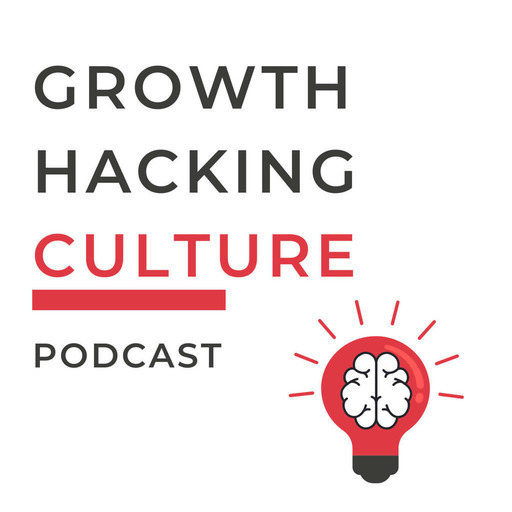In this episode of Learn with Bessern, we chatted with Brenden Kumarasamy - a communications authority. Elena Agaragimova and Brenden discussed about the importance of genuinely communicating in today's remote work environment, particularly on its impact on culture building and the role leaders play to create a company culture of psychological safety, connection, transparency, and collaboration.
The main question that we target in this episode is:
How can companies find more effective ways to communicate their culture post pandemic?
About our guest speaker Brenden Kumarasamy:
Brenden is the founder of MasterTalk, he coaches ambitious executives & entrepreneurs to become top 1% communicators in their industry. He also has a popular YouTube channel called MasterTalk, with the goal of providing free access to communication tools for everyone in the world.
Key Takeaways from the Podcast:
About the shift in workplace communication:
Brenden said - When compared to the real world the virtual world hinders communication to a great extent. When you are working in an actual office space you can have a conversation with somebody at the company and get to know each other and really get a feel with the people that you're working with. But those points don't exist in the online world. There's a lot more friction and this makes building the workplace culture even harder.
Differences in culture post pandemic:
From a communication perspective, the biggest challenge of all, is how can you recreate the same culture in a virtual world where before it used to be a lot easier to have those interactions and those touch points amongst employees at a company in person?
Example of a simple method to engage employees into the culture:
Brenden gives us an example of some companies who have adopted a different method during recruitment. He says "what they do is they interview employees of the organization on the podcast, and they use that as a talent sourcing strategy to send those links to prospective candidates so that they listen to the podcast and they say Oh, I really want to work here. I really agree with the culture the values here. So that's a couple of things that I've seen that companies are doing the stand up from the communication cultural perspective".
Leadership perspective and challenges:
He says that there's three pieces to being an effective leader from a communication perspective. Number one is setting the vision and clarity around the vision, where are we going, and why are we going there? So the first role of a leader is to reflect and strategize what is the vision what and this is what we call vision casting. Bringing us into our future into a better tomorrow.
Hiring Talent:
The second job of the leader is to hire exceptional talent that embodies the vision of the organization, people who believe what they believe, people who want to help permeate the culture who do a really great job of bringing the culture forward. One great example of this is the PayPal Mafia when when Peter Thiel and Elon used to run PayPal together, a lot of the people who were working for people at the time almost all of them went on to start billion dollar companies kind of wild. And the reason the culture was so tight is because they all believed in this new idea of money and currency and creating a better payment system for everybody.
Communication is Repetition and Refinement:
When the leader hires more people he/she must repeat the same vision over and over and over again, because there's always people who haven't yet heard the mission or if they did, it hasn't been reinforced.
Tactics for Small Businesses to improve communication:
First is taking notes of all your employees goals on a phone or a place where you can access them. So whenever you have feedback calls with them, you can proactively mentioned their goals. These are the little things that small business owners must do or else there's no way they can beat their bigger the bigger fish. Yeah, no, I think it's spot on. It's just literally just showing to the person that you're there to listen, you pay attention, you care about their development, and you're gonna keep them accountable because you remember what they're working on.
The other tactic, is sending video messages to the people that you manage at work: Brenden asked this all the time to my clients. I asked them this question. How long have you worked in corporate they might say 13 years, seven years. Five years? Somebody say 20 years? They say Okay, great. How many times in your career not today or this week? How many times in your career? Has your manager ever sent you a video message to just say, Hey, listen, I really like the work that you're doing. Love this and this about your work could be a wonderful day. Wish you a wonderful weekend. How many times has that happened? And all of them say zero.
Tips that companies must adopt to create opportunities to build relationships with people when they are onboarding them remotely:
Number one is have a buddy system, get people who around their age who are already working at the business that can be a liaison to other people.
Number two is intense note taking. Take a ton of notes. On the person your onboarding, especially if it's small team around their personal interests, so that when you send them an onboarding gift, you don't just send typical gear, you send them something that's more related to who they are.
Number three is if you have a virtual remote workplace, figure it employees who live in the area and make sure they meet each other in person. This goes a long way in building relationships and improving the workplace culture.
Creating a culture of feedback:
This is by far the most important step a leader can take to improve the workplace culture. When a leader gives regular feedback it becomes a lot more encouraging. Whereas when it becomes a pile dump of a bunch of things you got to work on. It's not encouraging. You don't actually want to work on yourself. You don't actually want to get better, versus if you give a couple of easy things that the employee works on. They actually do it and you celebrate those mailings. They get really confident in their job really quickly, especially the early stages of their employment, and the retention skyrockets, reverse whereas if they feel life is a night
About Learn with Bessern
The Learn With Bessern Podcast is about exploring the science behind self-development, leadership and well-being. We demystify personal and organization growth. This podcast is hosted by Elena Agaragimova and Ivan Palomino.
SHOW LESS


 Emissions
Emissions











